If your friendships are taking a knock because of your chronic illness – you're not alone at all. Studies show that one-third of chronic illness sufferers encounter social problems every day. But you have to cope with this loss, and I'm going to show you how.
I've been dealing with my chronic illnesses for 14 years now, and I've experienced all the highs and lows that friendships can bring you.
Thinking back, it's quite an uncomfortable topic I've had to process one bite at a time.
When we thought the only issue I had was a benign tumour removal, my friends were supportive. But the minute my myriad of severe chronic health issues came out – the phone calls, messages and visits faded quickly.
What the f*ck? How could so many people that I considered good friends abandon me during these challenging times?
It was gut-wrenching to stop getting invites to events, only to see that I was excluded when I logged onto Facebook—or realising that my messages were received and never answered.
The first few years after my diagnosis, I said goodbye to many people who just couldn't cope with being my friend anymore while simultaneously trying and deal with other friends who just didn't get how severe the problem was.
I felt like I was being forgotten, all while desperately trying to be heard.
But, over the years, I faced hard revelations that have helped me make peace with the loss, appreciate the friends that stuck and look forward to connecting with new people too.
Here are my insights on chronic illness and friendship that you may find interesting.Understand That Friends Who Disappear May Not be Equipped to Help You
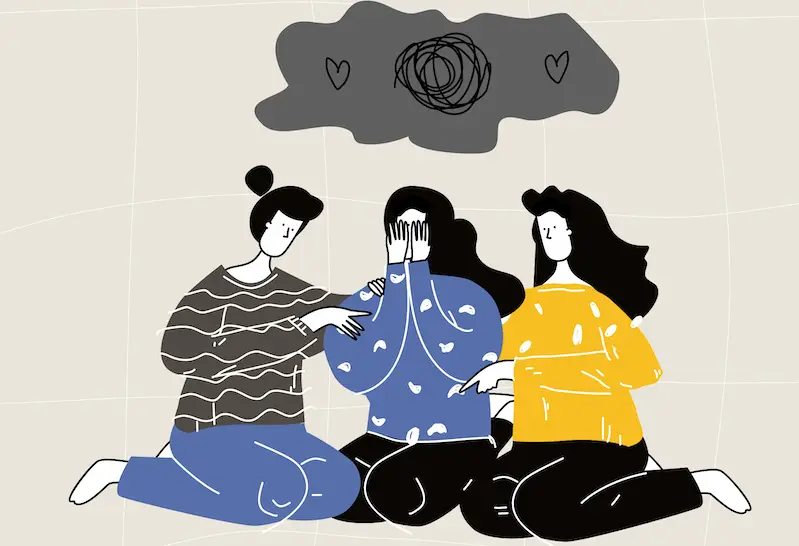
I know this is when you could use all the support you can get from your friends. Unfortunately, not everyone has the emotional means to help you right now.
You may notice that some of your friends find it difficult to relate to you. Others could be struggling to process the situation altogether.
Your life has changed in fundamental ways. This means your needs, wants, and outlooks on life have adjusted too.
What hurts the most is when you look back at how close you used to be and the hardships you may have already endured together.
But chronic illness is tricky because it's very different from just "getting sick and getting better".
If you're feeling enraged, disappointed, shocked or in disbelief that a person you cared so deeply about has chosen to back away – here are some things to consider:
Your Illness Reminds Others About Their Mortality
It lets them reflect on their own lives and that they are not as invincible as they thought. This is pretty overwhelming when you're young, and not everyone can handle it.
Some Friendships May Be More Superficial Than You Thought
Some of your friendships might be built on superficial values, interests and experiences.
When something as life-altering as a chronic illness comes your way, it can completely transform your outlook on life. You might find your friendships were more superficial than you thought.
Your chronic illness will make you grow and change as a person. You may realise that some of your friends just don't share the same beliefs anymore.
Some Friendships Cannot Understand How Much Resilience You Need To Cope
The level of resilience needed to deal with a chronic illness is astronomical.
You may find that some friends don't get the gravity of your situation and downplay it quite a bit. Either by mocking or criticising that you are less able than you were before.
Some friends may have no experience with chronic illness yet feel you should follow their unsolicited advice. They can be pretty forceful or judgemental if you don't.
Someone Leaving Tells You More About Them Than It Does About You
No matter the situation, try to remember that it's not personal when this kind of discord happens. If anything, it tells you more about where they are in their lives right now than it does about you.
Remember that it's near impossible for any friend to understand what you are going through right now. So, if they are trying to be supportive, it needs to be acknowledged and appreciated.
Respect That Not Everyone Knows How to Help Because There's No Solution
Flu is a common problem with a simple solution. When it comes to chronic illness, there's nothing common or solution-driven about it! It's all one big question mark you need to learn to live with.
Because of this, some of your friends may not know how to handle it or talk to you anymore – especially if they want to help you but don't know how to.
They could feel awkward and insecure about asking you questions. They may not have any past experiences to relate to – or share with you to show empathy. Overall, it can feel quite uncomfortable.
When a friend does something hurtful or careless, try to remember that it's not intentional. They probably have no idea what to say to you or how to handle the news you tell them.
Just don't be scared to tell them if their actions or words are insensitive. You need to stand up for yourself and set your boundaries by explaining why you feel triggered.
Make Peace With The Fact That All Friendships Have a Unique Lifeline
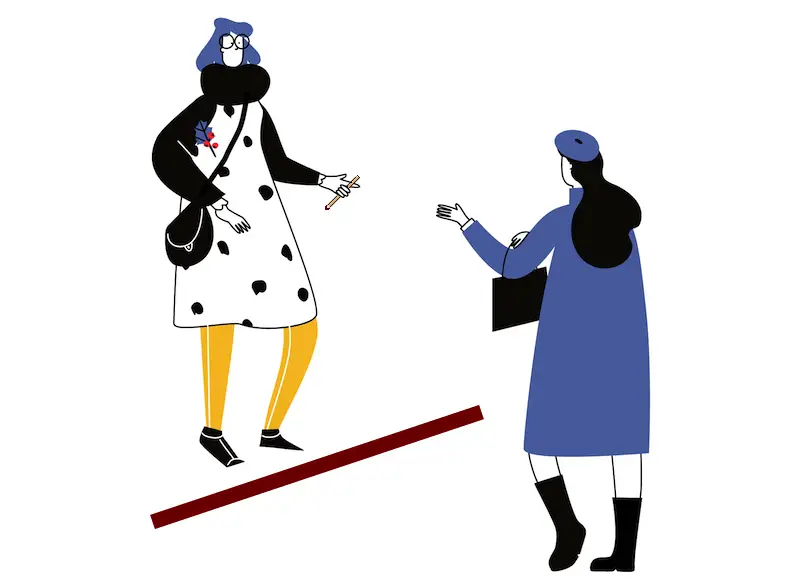
We may take the loss of a friendship personally and blame it on our chronic illness – but we forget that it's pretty normal to make and lose friends at any point.
One of the main reasons our friendships change is life experience and trauma.
People always say that hardship shows you who your true friends are – and it's true – but that's not the only reason friendships fade. Sometimes friends cross our paths to teach us a lesson. When the lesson ends, so does the friendship.
Try to appreciate what you had with the friends who have faded from your life entirely. Be grateful that your paths crossed because it must have taught you something.
And remember, closing a door now doesn't mean it will never reopen. It may not be the right friendship for you right now, but who knows what the future may hold.
Face The Resentment You Feel So You Can Move Forward
This is not just with the friends you've already lost, but also with those that have faded.
Not all your friends are going to be able to give you the same amount of support – and that's okay!
But this doesn't mean you should stop reaching out to people or stop communicating what you need in your life right now. Your efforts will attract the right people into your life.
If you are frustrated with friends that you see less, you need to work through your built-up resentment ask yourself if your expectations are fair.
One of the best ways to do this is by bouncing your feelings off someone you trust and getting their honest opinion.
I say this because sometimes your feelings come from a place of resentment, anger, exhaustion and heightened sensitivity due to trauma.
When your heart is just sore and lonely – losing touch with friends only makes it worse. So it's worth getting feedback on how your emotions. You'd be surprised how uplifting it can be to get some grounding feedback.
And when you do see your friends, you should vent your frustrations but don't let those precious moments you have together go unappreciated.
Saying something as simple as this can help strengthen your bond so much:
"I know how much things have changed, but I really appreciate the fact that we can still spend time together. Thank you."
Use This Experience to Show You Who your Real Friends Are
Don't ignore the friends by your side because you are more focused on the losses you've had than the gains.
I know there are moments where you feel isolated and alone. But the people who stick by your side deserve a great deal of love and appreciation.
Channel your energy and time here because these friends often become your pillars, and you can become theirs in return.
Chronic illness affects all your loved ones in some way. And the people who stick with you through thick and thin have made sacrifices to be there.
No, it's not as hard as being the person with the actual condition. But remember that no one is obliged to be a good friend through your health journey—those people who choose to need your appreciation.
Express Your Limits So That Friends Know What to Expect From You
It's good to push yourself in social contexts when you have a chronic illness. Go out and do new things, see new places and try fun activities.
But make a point to be with friends that you know you can rely on. It will help preserve the friendship going forward because they can have realistic expectations of what you can do.
Five things to remember about setting your limits with friends:
Stick With People You Trust
When you’re pushing yourself in a social situation, make a point to be with friends you know you can rely on. If you want to stop or encounter an issue at any point, it’s best to be around someone who can help you.
When You’ve Had Enough – Say Something
I know it’s tough, but articulating how you feel is very important when you’re with your friends.
If you're out together and you want to leave, you need to tell your friends that you've had enough and it's time to go even if you've only been there for 5 minutes.
If you are in a situation that makes you uncomfortable, explain why it’s unsettling for you and stop.
If you feel that your friends are not respecting your boundaries or are insensitive to your circumstance – you need to stand up for yourself in a direct but informative way.
Don't Feel Guilty
When you set your limits and boundaries – don’t feel guilty about it. I know it’s easier said than done, but it’s true.
Feeling guilty for being chronically ill is pointless because you are not to blame for your illness.
If this is something you’re struggling with right now, you need to get some tips I share in this article on Overcoming Guilt and Chronic Illness.
A Good Friend Will Respect Your Boundaries
They will understand if you need to go home and rest. And they will understand if you feel their jokes or advice have gone too far.
Always Show Appreciation
Friends who stick by your side and respect your boundaries deserve your gratitude and respect back.
Chronic illness affects all your loved ones in some way. And the people who stick with you through thick and thin have made sacrifices to be there.
If You Want To Do Nothing – That’s Okay!
What you’re going through right now is mentally and physically draining. You need more rest now than you ever have before.
Explain why your time alone is important to you. And make it clear that just because you might say no to seeing them, it doesn’t mean you don’t want to get invited at all. You still want to feel included, even if the timing is wrong.
Speak About Your Health in a Relatable Way to Build Understanding with Others
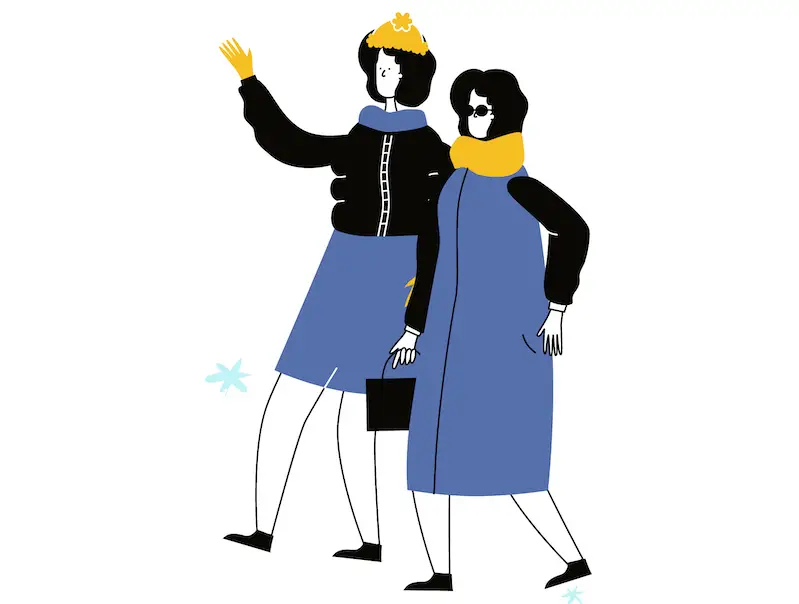
You might think there is no hope for your current or future friendships in the face of loss, but I promise there is. Not everyone will abandon you when they learn how your chronic illness affects your social life. Here are some ways to facilitate the process.
Try Speaking to Your Loved Ones 1-on-1
When you're ready to dive deep into a heartfelt conversation about your health, try and make a plan to speak to your friends in a more intimate environment.
You will feel safer when opening up to them. And you will have the peace of mind to go through your thoughts properly.
Use Health Issues They've Experienced As A Reference
Something that can make you feel very isolated when you talk about your health is that it's unlikely that any of your friends (pre-diagnosis) have experienced anything similar.
Most people have been on bed rest before, taken stronger medication, or even used crutches. It's not nearly as severe as anything you're going through now – but it's a mutual point of reference you can share.
Let Them Join You At a Doctor's Visit
It can be challenging to convey the severity of what you're going through when you're on your own.
If this is happening to you right now – why not take your friend to your next doctor's appointment? Or even record the crucial parts of the appointment for them to hear.
It helps your friends understand your world a lot better.
Do Some Guided Research On Your Condition Together
Researching together is a great way to break the ice and talk about all the uncomfortable, awkward and weird stuff that often comes with a chronic illness that you don't mention.
It also creates an excellent environment to ask objective questions.
Let Them Help You Do Daily Activities
It is so frustrating to see someone you care about suffer and not help them recover in any way.
But, there are ways your friends can help you that are practical and useful.
Things like help with grocery shopping, catching a lift somewhere, or even just coming over for a good chat are so essential to use. So if they want to help you – why not?
Find Creative Ways to Stay in Contact When You Can't Commit to Plans
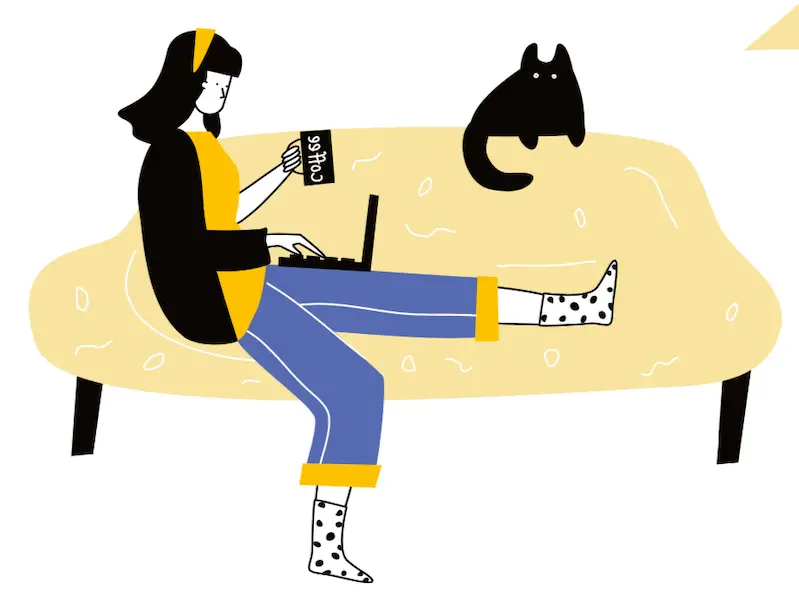
Unfortunately, most chronic illnesses have a plan of their own. Any projects you make in advance need to come with the following disclaimer:
"I will be able to attend/join on the basis that I am feeling well that day."
So, if you're going to make things work in a friendship – flexibility and creativity become essential skills to have.
Your body is going through a lot, so if you're tired – rest. You are not lazy or uncaring if you can't make an event, and your friends need to respect this.
If you can't follow through on a commitment, you can always reschedule to do something else. It's unlikely to be a once-in-a-lifetime opportunity.
And you'll notice that if you put in the effort to be open about your health, you will have loyal friends that are left unbothered by your last-minute decisions.
Here are three of my favourite alternative get-together options I use all the time.
Have A Virtual Coffee Catch-Up
Having a virtual coffee is something that I love to do. Instead of going to a cafe, I'll make a cup of tea at home, and my friend will do the same – and we can have a drink 'together' while we catch up.
Start Or Join A Club
Whether you're into reading, art, sports, dancing, movies or anything else – use it to unite your friends and start a social group.
Make a plan to meet once a month, partake in the activity together and catch up. It allows you to keep making fond memories together in an environment that's safe for you too.
Start A Whatsapp Group
I like to have a WhatsApp group with my friends to send updates about my health.
It's a great way to make everyone feel like they're in the loop and part of your life. I also suggest having a second group that you use for all social events, notices and pictures shared between your friends.
So even if you're not always with them, you're still kept in the loop.
Use This Empathy Activity to Help Build Mutual Understanding With Others
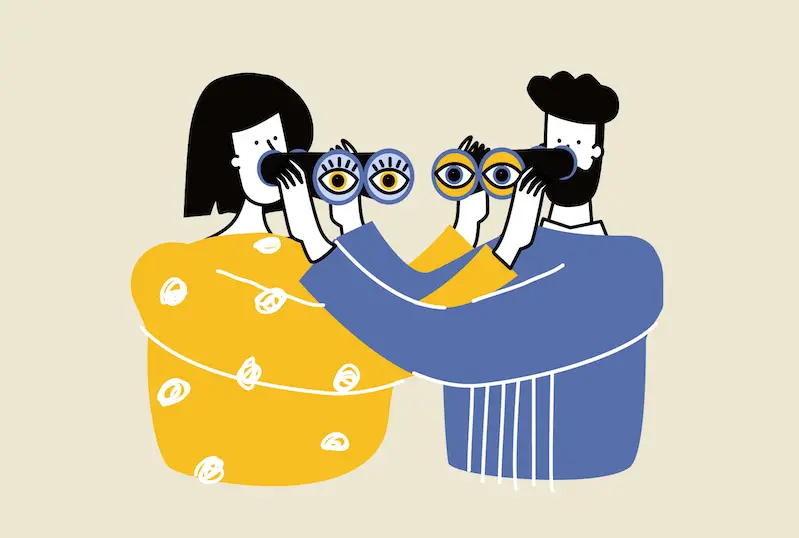
As someone with a chronic illness, what you're going through right now is so difficult to understand. And it's even harder to explain when you, yourself, don't understand everything just yet.
Remember, this can also make it very difficult and confusing when a friend tries to help you.
This is when it's easy to have miscommunications and lose touch with one another. But it doesn't have to be. A great activity to do for both you and your friend is to think about:
Sit down and go through this. It can be energy-draining, and a few tears will be shed. But if you're good friends with the other person's interest at heart – this will do wonders for your friendship.
Let Your Chronic Illness Help You Make New Friends in the Community
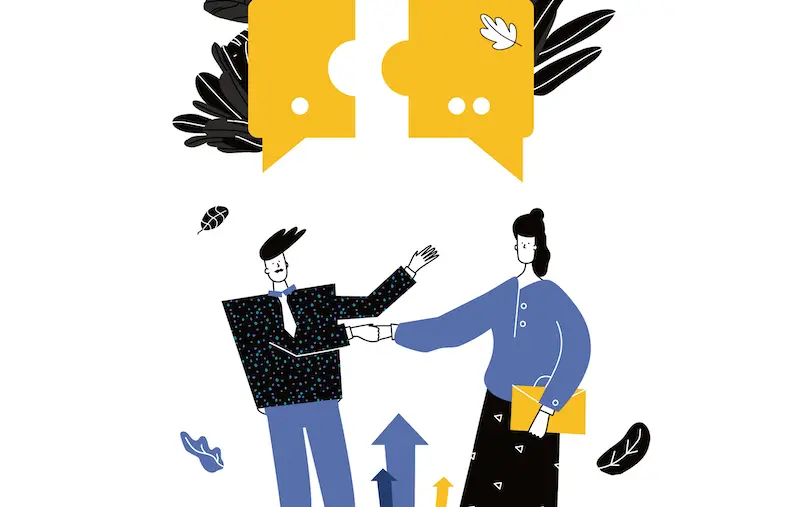
Life experience shapes us. And when we go through similar journeys as friends – it bonds us. So it's okay if you find yourself having less in common with a friend with whom you used to be close.
Not all people are meant to become life-long friends. Some are just meant to be there during a specific period.
Never let a loss get in the way of the friends who are standing by your side right now.
A chronic illness turns friends into strangers and strangers into friends.
If you find your friendships are changing quite quickly. Here are some tips:
If you haven’t taken to social media where you can share your health journey – I really suggest giving it a go.
On that note, joining The Discerning You and our loving community is a fantastic way to help you meet new people who understand the struggle you're facing.
Give us a follow on Instagram, join our conversations and tell us how you're feeling.
I can't wait to hear from you and give you a virtual hug.
Remember, losing friends because of your chronic illness doesn't mean you're alone – it just allows you to make new friends who understand your struggles better.


